FACTSHEET
MASTER’SPROGRAMME
LITERATURE TODAY/LITERATUUR VANDAAG
Dear students,
Welcome to the Master’s programme Literature Today/Literatuur vandaag. This is an exciting new step in your academic education. You have chosen for a one-year Master’s programme in order to deepen your academic training, but to also prepare yourself for the professional field that you will enter after graduation. You might have many questions and perhaps some concerns about what lies ahead, during this year, but also after the completion of your Master’s:
How can I best structure my studies? What do I need to do in order to complete all courses successfully? Should I go for an internship to broaden my practical skills? Or should I deepen my knowledge of the field by taking additional courses instead? When should I start the research for my Master’s thesis? In which area would I like to work after I have completed my Master’s degree?
Some of you will already be familiar with Utrecht and Utrecht University from your Bachelor’s degree, while others are new to the city and to the university. This factsheet explains the programme’s structure with its three different tracks, it clarifies the academic expectations and input required for the Master’s degree, and it offers practical advice on finding your way around the programme, Utrecht University and the city of Utrecht. With the help of this factsheet, you should be able to orient yourself well within the programme – it can assist you from start to end, until you eventually finish the degree with the completion of your Master’s thesis. It can serve as a point of reference for you throughout the year. Of course, there is also – and more importantly – the community of your fellow students, the teaching faculty, the study-advisor and myself as programme coordinator who are all here to make this an exciting and rewarding year for you.
I hope that this factsheet will do its small share in letting you fully benefit from what the University and the city of Utrecht have to offer. If you have further questions, you can always contact me
I wish you a great start to the programme, a lot of new insights and personal inspiration, and a successful year of study here at Utrecht University!
Dr. Jeroen Salman
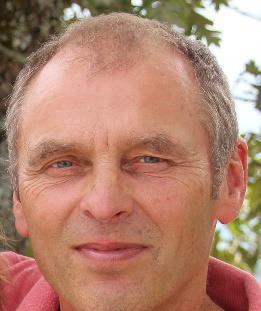 Master’s coordinator Literature Today/Literatuur vandaag
Master’s coordinator Literature Today/Literatuur vandaag
DR . J
S ALMAN combines archival, bibliographic, iconographic and textual research, and by doing so he is able to reveal unexpected interplays. His research is characterized by a broad interdisciplinary approach of neglected historical topics, such as popular literature, free speech and criminal biographies. He is also an affiliated member of the Utrecht Center for Digital Humanities.
TAKE A LOOK AT OUR WEBSITE
EROEN
DO YOU WANT TO PARTICIPATE?
The curriculum committee (Opleidingscommissie, OC) is a representative advisory body that deals with the quality of the education of the Master programmes within the Department of Languages, Literature and Communication. The committee consists of a teacher section (three teachers) and a student section (three students), one student from each Master.
What are the CC's duties? Students complete a course evaluation for each course at the end of each block. The CC then evaluates the courses on the basis of this course evaluation and reports on them during meetings with the rest of the CC. In addition, the CC issues advice about the Education and Examination Regulations (EER or in Dutch OER) after an evaluation of this OER. Finally, the CC advises the programme board on all sorts of matters concerning education. For the current members of the CC, have a look at: https://students.uu.nl/en/hum/literature-today/contact/curriculum-committee. If you’d like to become a member on the committee, please contact the master’s coordinator Jeroen Salman
THE TEAM OF LECTURERS
■ ■ ■
DR . R EINDERT H ONDT is assistant professor of Spanish and Latin American literature and literary theory. His expertise lies in discourse analysis, memory studies and affect theory. His does research on the transnational dimension of the Hispanic essay and the representation of violence in Mexican and Colombian literature.
■ ■ ■
DR L EILA E SSA is assistant professor in Comparative Literature. Her research interests comprise publishing studies, authorial Politics and activism, post-partition literature and critical theory.

■ ■ ■
PROF . DR . G EERT B UELENS is professor of Modern Dutch Literature. His research deals with the intersections between literature and society. His current research focuses on the cultural history of the 1960s, the writing of (inter)national literary histories, neutrality and WWI and the interplay between poetry and song writing.
■ ■ ■
DR . N INA G EERDINK is assistant professor Early Modern Dutch Literature. Her research focuses on Dutch literature from the long seventeenth century, with expertise in authorship, patronage, social poetry and gender. She is a member of the Curriculum Committee.


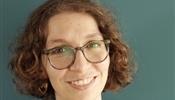

■ ■ ■
DR O NNO K OSTERS is assistant professor of English Literature and Translation. His teaching and research centre around contemporary literature, (literary) translation, and Modernist writing. Authors of note in his activities are James Joyce and Samuel Beckett.
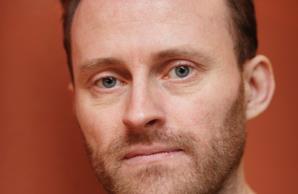
■ ■ ■
DR . C HARIS G OER is assistant professor in German Literature and Culture. Her expertises are German literature and culture from the 18th century to the present, pop literature and culture, comparative literature and arts, intercultural studies, and the didactics of literature. She is your contact for track 3b German Literature.
■ ■ ■
DR . L UISA G ARCÍA M ANSO is assistant professor of Hispanic Literature and Culture at Utrecht University. Her research interests include theatre, identity, memory, exile and migration. She is ‘contact person’ for students in track 3c. Hispanic Literature.
■ ■ ■
DR L AURENS H AM is assistant professor Modern Dutch Literature, essayist and poet. His research looks into the role that authors have played in the Dutch literary world since the 1960s, as activists, jury members and public intellectuals.

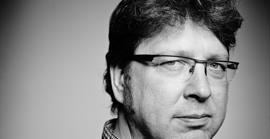
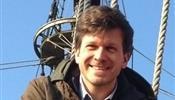
■ ■ ■
DR . B IRGIT M ARA K AISER is associate professor in Comparative Literature. Her research focuses on literatures from the 18th to 21st century, with a focus on aesthetics, affectivity and subject-formation as well as transnational and postcolonial literatures. She has published on Cixous, Derrida, Dib, Kleist, Melville and Özdamar.
PROF . DR . E WOUT VAN DER


K NAAP is professor of German Literature. His research focuses on cultural memory, in relation to the Holocaust and the GDR, comparative literature, German poetry and prose, and didactics.
■ ■ ■
DR P AUL B IJL is assistant professor in Comparative Literature, whose main interest is Asian and African literatures and cinemas, in particular of China and Indonesia. His interests include history, law, human rights, cultural memory, postcolonial theory and photography


■ ■ ■
PROF DR D AVID P ASCOE is professor of Modern English Literature and Culture. His research focuses on the relations between literary culture and the discourses of technology over the last two centuries.
■ ■ ■
DR S VEN V ITSE is assistant professor in Dutch Literature. His teaching and research focuses on Modern literature. He is one of the programme’s tutors.
■ ■ ■
DR J OHANNA H OORENMAN specializes in American literature. She focuses on 20th century American poetry and American romance fiction.



■ ■ ■
D R . M ICHELE K REMERSA MMOUCHE is assistant professor in Comparative Literature. Het main interest is Asian and African literatures and cinemas, in particular of China and Indonesia. Her interests include history, human rights, cultural memory, postcolonial theory and photography.


DR . B ARBARA M ARIACHE is assistant professor in German Literature and Culture. Her expertises are Austrian and German literature and culture from the 18th century to the present, , intercultural studies, the relation between text and visual representation. The wide range of subjects, from ‘History of Literature’ to seminars on ‘Culture and Identity’ reflects her genuine interest in working as a specialist in an interdisciplinary environment.
DR
OU is assistant professor in English Literature. Her research interests are poetry, 20th & 21st-century American literature, modernism, postmodernism, literature & the visual arts, feminist theory, translation. She is one of the programme’s tutors (“kerndocenten”) and coordinator of the internship support team.
H OUVENAGHEL holds the Chair of Hispanic Literature and Culture. She focuses on: the rewriting of myths, how ancient myths and mythical motifs travel through time and are actualized and adapted to modern situations in Spain and Latin America. She also studies the consequences of migration processes on literature by authors who leave their homeland and reconsider their identity.
■ ■ ■
■ ■ ■
■ ■ ■
. M IA Y
■ ■ ■
PROF DR HELENA
■ ■ ■
DR . M ÜGE Ö ZOGLU is Assistant Professor in Comparative Literature at Utrecht University. He specialisms are queer and gender studies, medical Humanities and middle East Studies. She obtained her PhD in Film and Literary Studies from Leiden University’s Centre for the Arts in Society (LUCAS). Her doctoral work entitled No Man’s Land: Gender and Sexuality in Erotic Narratives of the Late Ottoman Empire received the best dissertation prize by the LUCAS impact committee (2019). She has been a postdoctoral research fellow in the Department of Gender Studies at Lund University (2020).
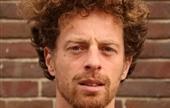
■ ■ ■
C LAUDIA Z ELLER is a lecturer in Dutch literature and culture. In her research she focuses primarily on literature from the twentieth and twenty-first century. Her research interests include bureaucracy, ecocriticism, postcolonialism, and possible intersections thereof.
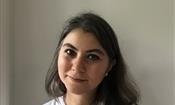
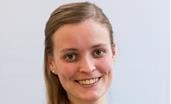
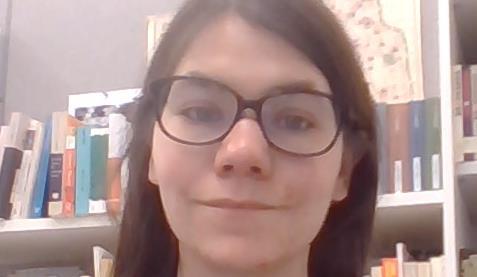
■ ■ ■
D R R OZANNE V ERSENDAAL is a lecturer in French literature and culture. Her research focuses on the relationships between French and Dutch literary texts both in the past and in the present. She is also interested in the production of francophone literature in the Netherlands, in particular the Dutch/Swiss author Isabelle de Charrière. Her teaching covers a wide variety of subjects, among which medievalism, literature and gender, literature and otherness and literary history.
■ ■ ■
DR . J OHAN S ONNENSCHEIN is a specialist in modern Dutchlanguage poetry. In 2012 he received his PhD from the University of Amsterdam based on his research into the relationship between poetry and religion, society and politics. He is currently working on a history of 'the new’ in Dutch poetry from 1800 onwards. Alongside this, he is researching the history of the Down syndrome in Dutchlanguage culture.
STUDY ADVISOR
The study advisor for your master’s programme is Harriët Luijendijk-Jungerius. You can consult the study advisor concerning personal problems or other circumstances that affect the progress of your study, such as illness or disability. She can also answer your questions about graduation, registering for courses, exemptions, study plans or conflicts with teachers. Please contact her via: studieadviestlc.gw@uu.nl

■ ■ ■ H ARRIET L UIJENDIJKJ UNGERIUS
THIS PROGRAMME
In the Master’s programme Literature Today/Literatuur vandaag, we study the field of literature as it works today, which means that we consider contemporary national and international trends in and future challenges to literature as a medium and form of expression, against the backdrop of significant historical developments and in light of an increasing commercialisation of the literary market. How does, for example, the heritage industry around Shakespeare’s or Austen’s works operate? What are current national trends in literature and what can we learn about them from, for example, the awarding of literary prizes? Which literary institutions influence these trends? How is literature spread to the reading public, and what role do literary festivals play in that? What are the latest developments in Hispanic literature, or German literature? What can we learn about cultural identification by studying French or Spanish literature? How do literary texts circulate globally, and what role does translation play in this regard? These are the types of questions that you will study in the course of this programme.
During the year, we pay close attention to academic and critical writing skills, offer the possibility to further develop your individual language focus and to deepen your grasp of literary and cultural theory as well as your professional skills. Critical reflection, building up a repertoire, and understanding how literary institutions operate in an era of globalisation are central to your studies during this programme. You will investigate from theoretical and practical angles how to help spread knowledge about literature, explain it to a broader public, and translate academic insights for the reading public.
To gain further practical work experience, Literature Today/Literatuur vandaag also facilitates national and international internships in the field of literature. You can complete an internship with publishing houses, media corporations, libraries, literary foundations, or cultural institutions – the professional field for which this Master’s programme prepares you. Our internship support team can assist you with finding an internship and will also supervise you during the process. Internships should be done in blocks 3 and/or 4, parallel to the writing of your thesis.
On the student website you will find more information about programme, internship and thesis. There you will also find more information on courses, policies and procedures. Visit : https://students.uu.nl/en/hum/literature-today/curriculum
COURSE PLANNER: You will find more information on this programme’s courses in the Course Planner:
https://cursusplanner.uu.nl/en glish/study/LK-LITT-23


THIS MASTER’S PROGRAMME AND OUR SOCIETY
During the Master’s programme, you will get to know different literary institutions that operate in the field of literature and culture. After finishing this programme, you can use the academic and practical skills that you acquired during your year of study and begin working at one of these institutions. You will be an expert on literature today who can work at (inter)national publishing houses, cultural institutions – places like the British Council, the Flemish-Dutch cultural platform deBuren (Brussels), the cultural centre de Balie (Amsterdam), etc. – libraries, or bookshops, or in media, museums, theatres, or literary-cultural festivals. In a wider sense, you are prepared for a future career in the sectors of literature, culture, and communication.
The Master’s programme in Literature Today prepares students for a broad spectrum of occupations that require expertise in literature and literary institutions. These can be in the fields of editing and publishing, organisation and event management, journalism, education, archival and library services, or even research and research support.
Students have found employment in the following companies and institutions:
■ Literature assistant at the British Council in London
■ Deputy director at Stichting Collectieve Propaganda van het Nederlandse Boek
■ Junior editor at the publishing house Coutinho
■ Publishing assistant at The House of Books
■ Freelance journalist
■ Literature editor at the cultural webmagazine CultuurBewust.nl
■ Project manager marketing and digitalisation, Overamstel Publishers
■ Lecturer in the English Department, Utrecht University
LEARNING OBJECTIVES
On completion of the programme the student:
✓ has profound knowledge of and insight into the field of literature in an international perspective, using a literary and cultural theoretical perspective;
✓ has thorough scholarly and repertoire knowledge of a specialty within the study programme;
✓ has the academic skills to independently identify, formulate, analyse and suggest possible issues in the current production and circulation of literature;
✓ has the skills required to gather relevant information and, based on this information, to formulate assessments or recommendations to stakeholders that consider the quality of the information gathered, and the societal, scientific and ethical responsibilities involved in applying one’s own knowledge and judgement;

✓ has the skills required to conduct research in the current field of production and circulation of literature and to present this research in a manner that meets the norms of the discipline;
✓ has (developed) the professional and academic skills taught in the programme;
✓ is able to apply acquired knowledge and insight within a broad (interdisciplinary, international and intermedial) context, in a professional manner;
✓ is able to communicate conclusions, as well as the underlying knowledge, grounds and considerations, to a specialist and nonspecialist audience;
✓ is capable of further (independent) academic development, based on the acquired knowledge and skills, in either postgraduate education (studies) or a PhD track.
IMPORTANT FOR HUMANITIES STUDENTS
New students students.uu.nl/hum-new Practical information for new students at the Humanities faculty.
Academic calendar students.uu.nl/hum-calendar
Information about days off, course registrations and change-of-enrolment days.
UU online

Information about our online systems and how to log in: students.uu.nl/hum-online In need of a manual? IT manuals: https://manuals.uu.nl/en
REGISTRATION, PROCEDURES, INTERNSHIP INFO
Student Information Desk Humanities students.uu.nl/hum-contact
Programme related matters, such as
• course registration
• course schedules
• study results & study progress (Osiris)
• graduation
Student Services students.uu.nl/en/contact/student-services
Studying at Utrecht University in general:
• registration as a UU student
• tuition fees
• elite athletes
• disability or chronic illness
Internship coordinator students.uu.nl/hum-internshipcoordinator


Information about:
• guidelines and procedures
• internship placements
QUESTIONS ABOUT ENTERING THE JOB MARKET
Career Services students.uu.nl/hum-careerservices
Advice on getting a job after graduation through workshops, CV check-up, and coaching. Your programme coordinator will inform you about programme-specific events.
NEED EXTRA HELP?
Study advisor: students.uu.nl/hum-studyadvisor






Student psychologist: students.uu.nl/psychologist
Workshops: Skills Lab: students.uu.nl/en-skillslab
THINKING OF GOING ABROAD?
International office Humanities: students.uu.nl/hum-io
OTHER FACILITIES
University Library: students.uu.nl/hum-library
Olympos sports centre: olympos.nl/en-us/home.aspx
Parnassos cultural centre: uu.nl/en/parnassos
FACT! You can find your grades, student card and timetable in the MyUU portal and the MyUU app: students.uu.nl/en/myuu and students.uu.nl/en/ myuu-app
FACT! In the second semester, you will have to register in Osiris for courses you wish to attend. If you want to switch courses, you can do so on the change-ofenrolment days before the start of the relevant block.
FACT! Deadlines are always listed in the course syllabus, which your lecturer will provide approximately 2 weeks prior to the course’s ’start.
FACT! If you need more information about specific aspects of your programme, e.g. internships or thesis, please see the Curriculum page on the programme website via students.uu.nl/hum.
FACT! Check students. uu.nl/hum-studentlife for information about living, jobs, sports and leisure in Utrecht!
© June 2023. Utrecht University, Faculty of Humanities. Every effort has been made to ensure that the information presented in this factsheet is correct and up to date. Utrecht University cannot be held liable for any false, inaccurate, or incomplete information presented herein.
 Master’s coordinator Literature Today/Literatuur vandaag
Master’s coordinator Literature Today/Literatuur vandaag




























